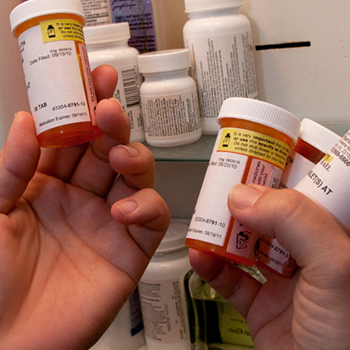 Recently, I was asked what I thought about the use of beta blockers to relieve speaking anxiety. I have to admit I was taken aback. I've known for a while that these drugs have been used by professional musicians to combat performance anxiety, though that is not a common practice. It is, however, controversial. But I had never been asked about use of these drugs for regular speaking-in-public situations! As someone who helps people overcome "speakers' nerves" on a pretty regular basis, I know that some sort of stage fright is absolutely normal. As a professionally trained actor, I am quite familiar with the concept. Yet I don't think I know any actors who rely on this sort of help. We all get attacks of nerves before going onstage, but part of our training is devoted to developing strategies for working through those anxieties. Most of us use some combination of yoga, breathing exercises, backstage rituals, and of course, rehearsal, to get us where we need to be so we don't keel over when the stage manager calls "places!"
Recently, I was asked what I thought about the use of beta blockers to relieve speaking anxiety. I have to admit I was taken aback. I've known for a while that these drugs have been used by professional musicians to combat performance anxiety, though that is not a common practice. It is, however, controversial. But I had never been asked about use of these drugs for regular speaking-in-public situations! As someone who helps people overcome "speakers' nerves" on a pretty regular basis, I know that some sort of stage fright is absolutely normal. As a professionally trained actor, I am quite familiar with the concept. Yet I don't think I know any actors who rely on this sort of help. We all get attacks of nerves before going onstage, but part of our training is devoted to developing strategies for working through those anxieties. Most of us use some combination of yoga, breathing exercises, backstage rituals, and of course, rehearsal, to get us where we need to be so we don't keel over when the stage manager calls "places!"
It seems a growing number of doctors are prescribing drugs such as propranolol (which treats heart and circulatory conditions) "off label" to patients with speaking anxiety. Before I looked into this, I thought, well maybe this is a relatively harmless little pill, a way to "take the edge off" before a speech. When I looked up propranolol, though, I found it is a pretty heavy-duty drug. If you take it, you have to avoid alcohol, as well as anti-depressants, and NSAIDS (aspirin, ibuprofen, etc). And of course there are side effects! Now, I am sure there may be some people who have such severe anxiety they do need drugs to help with this, but my hope is they are seeing a mental health professional and getting the support they need that way.
I am not a doctor (thought I did play a nurse on TV!), but I do know that if a particular use of a drug is not approved by the FDA there is usually a reason. This article in The Washington Post summarizes the arguments more succinctly than I can. But the bottom line is, feeling nervous when standing before strangers is not a medical "condition." It is a human condition, one that we all feel. Don't fall into the trap of medicalizing something you can train yourself to deal with. People who tell me about their performance anxiety seem to think this is some terrible affliction peculiar to them, when what they describe to me is what any actor feels on preview night.That adrenaline jolt is normal, and useful to an extent. If you have anxiety it means your body is doing what it is supposed to do: reacting to stress. If you want to control the effects of that anxiety, there are plenty of non-pharmaceutical ways to do so--that even allow you to take a celebratory drink after the curtain falls!

